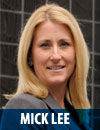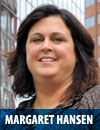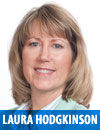The BTN Group in Denver in August bestowed its annual Best
Practitioners recognition upon four travel management professionals for their
work in enhancing their organizations' travel programs: Sanofi Pasteur deputy
director of travel services Will Anderson for implementing an advanced
strategic meetings management program; AT Kearney global procurement director
for corporate travel Margaret Hansen, a two-time honoree, for elevating travel
data management and reporting practices and wielding data to change behavior;
eBay global travel supplier management's Laura Hodgkinson for advancing
practices in measuring ancillary airline expenses and modifying the expense
reporting process to account for those new expenses; and Citigroup global
travel department managing director Mick Lee, BTN's 2001 Travel Manager of the Year, for persuading key suppliers
to accept minimum financial and operational terms and conditions before
entering into the request-for-proposals process. Anderson, Hansen and Lee in
August sat down with The BTN Group's David Jonas, Mary Ann McNulty and David
Meyer to discuss travel management transformation in a volatile market, duty of
care, sustainability and mobile technologies. An edited excerpt follows.
BTN: One trend we
hear about is the need to transform travel management programs. How do you best
approach it?
 Mick Lee: It is
something we do better in the travel industry than any other industry that I've
seen. We are constantly looking at what is next. We have found so far that we
have been a step ahead. We always want to answer the question before we are
asked. We have done that pretty well, and it's inherent in all of us, because
we all know change is coming and we all see what the future is. For us, from a
service perspective, it was launching a social media site within travel to
encourage people to talk and help us market the program. With the recent
downturn in the market, we had already looked at opportunities to consolidate
our headcount because of the efficiencies we had put in place in the past six
months. So we have already provided an answer to the question that I am sure
will be asked at some point going forward: How can you work more effectively
and efficiently, and do more with less people and leverage the technology?
Mick Lee: It is
something we do better in the travel industry than any other industry that I've
seen. We are constantly looking at what is next. We have found so far that we
have been a step ahead. We always want to answer the question before we are
asked. We have done that pretty well, and it's inherent in all of us, because
we all know change is coming and we all see what the future is. For us, from a
service perspective, it was launching a social media site within travel to
encourage people to talk and help us market the program. With the recent
downturn in the market, we had already looked at opportunities to consolidate
our headcount because of the efficiencies we had put in place in the past six
months. So we have already provided an answer to the question that I am sure
will be asked at some point going forward: How can you work more effectively
and efficiently, and do more with less people and leverage the technology?
Will Anderson: At
Pasteur, they decided to set up these centers of excellence. We had a travel
council for years and years, so we were light years ahead. Travel people really
have their ear to the ground. But for us now, it's [about] efficiencies and
sustainability.
Margaret Hansen:
And being able to logically respond to the changing needs of the organization
and the travel community. When changes are forced upon you, you have to be in
control of what's going on and how you are going to move. Having an organized
managed travel process enables you to say, "Here are the facts; here is
what I recommend." It's true that this is an industry that constantly
changes and that you are constantly anticipating what will come next.
Lee: The things
that have happened in the industry and the way that we've been able to react
has changed the way we are viewed. When you look at the situation in Egypt or
the volcanic ash, and the fact that the travel team can respond, we're seen
more as a truly required function of the business. The duty of care has
extended to us, because we can answer that question: How many people do we have
that are going to be affected? How do we get people out of Egypt overnight? The
fact that we can deliver has made us a valuable resource.
Hansen: Don't you
find you are always the first responder? I'm the first one who heard about [the
March earthquake affecting] Japan, and I wasn't even in the office that day. It's
always within travel that we are getting an inkling, from a vendor or a notice
or something, and you are the one reaching out.
 Anderson: You'd
think we are Homeland Security because we are always generating the reports. We
have our VIP desk, and we use International SOS technology to track our people.
A person from the VIP desk came together with our head meeting planner, and
they discussed how you can track transient business travelers all over the
globe, but we have hundreds of meetings going on. If there's a geological event
or something, where are all those meetings? And what if there are VIPs at those
meetings? I don't know all the particulars, but they merged the technology of
the GDS, StarCite and ISOS, and track the meeting on ISOS as if it were a
person. So we know where all meetings are all over the world.
Anderson: You'd
think we are Homeland Security because we are always generating the reports. We
have our VIP desk, and we use International SOS technology to track our people.
A person from the VIP desk came together with our head meeting planner, and
they discussed how you can track transient business travelers all over the
globe, but we have hundreds of meetings going on. If there's a geological event
or something, where are all those meetings? And what if there are VIPs at those
meetings? I don't know all the particulars, but they merged the technology of
the GDS, StarCite and ISOS, and track the meeting on ISOS as if it were a
person. So we know where all meetings are all over the world.
BTN: What about the
recession? How have you handled the economic downturn and the changes that you've
had to implement as a result?
Hansen: You are
always watching it. Business is business, and it demands what it demands. We
sell intellectual capital, so our people are always moving. Depending on the
demands of the clients and the work we have on hand, you manage to it. It's
always with a conscientious mind on costs, and we show them the extremes of
where they can go and what they can do. They have the opportunity to say, "Maybe
this isn't the time to execute that," or, "We want to do more with
this," and they send that message. In a way, by being proactive and
providing that information, you can move with the trends in the marketplace.
BTN: How is
sustainability becoming part of the program, whether through demand management
or working with vendors?
Anderson: We
build it into our contracts for meeting planning to encourage sustainability. I
am just capturing for Pasteur right now our air carbon footprint, and we do a
limo share program and measure the carbon footprint.
Hansen: For our
meetings, we always do community service projects. For our big meetings we
measure our carbon footprint and we neutralize, so we are getting the carbon
credits. But we also do community service work with our meetings. Highly
encouraged.
Anderson: What do
you mean?
Hansen: We build
bikes for an orphanage, or for the local Native American community. There was
an education program for a school that had no funding, where all the partners
did something for their local country or market, to educate the kids about the
world. We're always doing something wherever we have a meeting. "We're
here; how do we give back?"
BTN: There can be
lots of environmental questions in hotel RFPs. How often do the answers to
those questions have any bearing on the selection process?
Hansen: First of
all, they don't all fill them out. You have to push your national sales rep to
get their people to fill them out. You have to tell them they'll get better
placement in the directory and better recognition if they actually fill them
out. But there are only five that are actually meaningful, and I wouldn't use
them all because then it's overkill. You have to look at it and apply it your business,
and use your judgment based on what you are trying to do.
BTN: Do you reject
properties on the basis of how they answer those questions?
Hansen: You have
to look at where your business is going. If we are going someplace and there is
no other choice for a hotel, you have to go. But in New York, Chicago or
markets like those, you will find a preferred property because of what they do.
Employees should have the mindset to say, "That's the place I should be
sleeping. It's better for the firm."
Anderson: There
is pressure from our companies to have green programs, but there are business
decisions that sometimes come before that.
Lee: All things
being equal, you would go where sustainability is a strength. But to your
point, we would not put sustainability above business requirements.
Hansen: Suppliers
come in and give you 50 pages of text. They are reusing the water when they
wash their aircraft. They all have very similar areas of focus. Sustainability
is cost-effective, so when they can be more sustainable, they drive down their
cost. Are they doing it for you and me, or are they doing it because it helps
their bottom line? In the RFP, you get so much information. Having consistent
metrics in all categories is a challenge, so you do have to use some of your
own assessment for the material you get.
BTN: It seems as if
mobile corporate travel bookings are almost here, and certainly something at
least to consider. How is that handled in each of your companies?
 Hansen: For us,
it's always collaboration. We draw in the resources from the talent within our
firm. We work with travel, our IT department, finance. It definitely would be
IT for what the app is. The function, the workflow and the deliverable back to
the employee would probably be travel. Finance would benefit from more
controls, more compliance with the programs. So everybody is part of the
process.
Hansen: For us,
it's always collaboration. We draw in the resources from the talent within our
firm. We work with travel, our IT department, finance. It definitely would be
IT for what the app is. The function, the workflow and the deliverable back to
the employee would probably be travel. Finance would benefit from more
controls, more compliance with the programs. So everybody is part of the
process.
[At one expense management tech] company, when you check in
at the hotel or your rental car, the receipt goes to your expense report—the
receipt, not just the expense. You can see it all on your phone. That is so
cool. I need that technology. We use a platform from a supplier that does not
do that today. Most professional services firms use the same supplier because
that expense tool has time management, and we bill our time. The other big
competitors in the industry do not do time management. They also take the data
and put it into their own cloud, but we want it in our own data warehouse.
Those are huge points of difference when you look at the technologies you are
using, but it'll be very exciting times when that comes through, and people can
just do 1-2-3 on the mobile device.
BTN: What would you
recommend to someone learning about and trying to implement your best practice?
Hansen: Look at
your data and understand how to apply it to your business. There is a story.
There is information there, so read it. When you look at the different pieces,
you start to see trends and patterns. At the end of the day, it's the cost of
T&E. You have a responsibility to understand it, control it and make it
better. Not everybody in the travel space is necessarily analytical, but you do
need to be a little analytical in travel.
Lee: Around the
terms and conditions, one [learning] would be the criticality of being inclusive
within your corporation, bringing in the right team early on—legal, data
privacy, compliance—across the board. The other would be not to take no for an
answer. The fact that it hadn't been done before, or the fact that suppliers
push back on progressing in that way, shouldn't stop you.
Anderson: Use the
data to get a landscape. The voice of the customer is very important. The IQ of
the team is much higher than any individual member on the team.
Lee: There were
drafts and discussions that went on before we went out with the terms and
conditions because we wanted to learn from suppliers what it looks like. We
said, "Yes, it's hard. It might not be something you've done before, but
do you think it will work?"
Business Travel News
recognized eBay travel buyer Laura Hodgkinson as a 2011 Best Practitioner for
her efforts to better track ancillary airline fees by building drop-down menus
into the company's Concur-powered expense reporting tool. Separate from the
Best Practitioners roundtable discussion, Hodgkinson spoke with BTN senior editor Jay Boehmer about her
efforts.
BTN: Buyers have had
difficulty negotiating ancillary airline fees, but could you take this data to
airlines to at least make it a part of the discussion?
 Laura Hodgkinson:
Absolutely. There are some times where we may not hit our numbers, and we can
always say, "Add this to the pot that we spent on your carrier." Of
course, I've tried to negotiate for things like baggage fees, but when the
airlines don't track them, it's hard. I have seen one major carrier step up to
the plate to try and improve that, which I think is terrific. These ancillary
fees are sometimes the difference of a profit for the airlines, so they're not
going away. They've added twice as many from when I started this project. It
comes down to, how are we going to come together on both sides of the table, so
that everyone's getting true value?
Laura Hodgkinson:
Absolutely. There are some times where we may not hit our numbers, and we can
always say, "Add this to the pot that we spent on your carrier." Of
course, I've tried to negotiate for things like baggage fees, but when the
airlines don't track them, it's hard. I have seen one major carrier step up to
the plate to try and improve that, which I think is terrific. These ancillary
fees are sometimes the difference of a profit for the airlines, so they're not
going away. They've added twice as many from when I started this project. It
comes down to, how are we going to come together on both sides of the table, so
that everyone's getting true value?
BTN: Are you
optimistic for a more industrywide solution?
Hodgkinson: In
2009, I thought we'd have an answer by now. I'm amazed we're still struggling
with this, to be honest with you. I work in a very fast-paced technology world,
so it's hard to see that travel takes a while to get technology up to the level
it could be. I've been on the supplier side, and it takes time and money, so
that's always a challenge, especially when you have a bad economy. It's a
twofold situation. I don't think it's going to be resolved right away. I
thought the [Global Business Travel Association] ancillary fee task force was
going to help that. I think it opened our eyes to more challenges, instead of
solutions. But that doesn't mean we don't have solutions. We've got Concur and
AirPlus—the party of three [with Continental Airlines]—working to really move
this forward, so we appreciate that.
BTN: When did you
first realize you had to measure ancillary fees?
Hodgkinson: It
goes back to 2009. There were a lot of articles being written, because
ancillary fees were becoming a big deal. One article said it would be 30
percent of your total spend. That's kind of shocking when you see that. Also,
management was saying, "What are we really spending? We could be 30
percent over our travel budget and have no way of knowing." When those
type of questions come up, you say, "I'll get back to you," and start
to do some digging. Also, I was in the middle of working on my Wharton
University GLP designation, and our team had decided to study ancillary fees,
so I volunteered to do a case study supporting both needs.
Originally published in the Nov. 7, 2011, issue of Business Travel News.